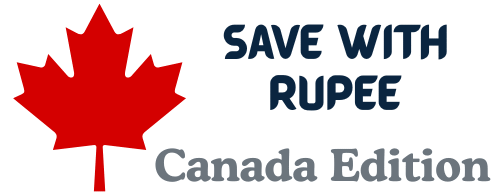Answer Box:
In Canada, taxes fund vital services—think hospitals, schools, roads, and financial support for families and seniors. Every year, Canadians file a tax return to reconcile what they’ve paid, what they owe, and what’s eligible for refund or credit. Both federal and provincial governments collect income tax, using a system that increases as income rises.

A Real-Life Story: Maria’s First Canadian Tax Return
Maria moved to Toronto and started her job as a pharmacy assistant. Like most newcomers, she was nervous about her first Canadian tax season. After hearing about tax benefits and refunds from coworkers, she visited a local newcomer centre for help. Not only did Maria claim her credits successfully, but she also received a tax refund—leaving her amazed and empowered. “I didn’t expect to understand taxes so quickly, but support made all the difference!” she now tells her friends.
The Essentials
- Why do Canadians pay taxes?
Taxes make possible universal health care, strong infrastructure, affordable education, and social programs that define Canadian life. - Who needs to file a tax return?
Anyone earning income, seeking credits or benefits, or required to pay taxes must file, even if they’re a student or only worked part-time. - Tax year and deadlines:
- Tax year: January to December
- First day to file for 2025: February 24
- Main deadline: April 30 (June 15 for self-employed, but pay any balance by April 30)
How Does the Canadian Tax Return Work?
Each spring, Canadians complete the Income Tax and Benefit Return, which collects personal details, reports worldwide income, captures deductions and credits, and arrives at either a balance owing, a refund, or “no change.”
Residents of Quebec file both a federal and a provincial return, while the rest of the country does everything in one tax filing.
Canada’s Federal Tax Brackets for 2025
Canada uses a progressive tax system, meaning as your income increases, so does the rate, but only for each bracketed portion.
| Taxable Income | Federal Tax Rate |
|---|---|
| Up to $57,375 | 15% |
| $57,375 – $114,750 | 20.5% |
| $114,750 – $177,882 | 26% |
| $177,882 – $253,414 | 29% |
| Over $253,414 | 33% |
Everyone gets a Basic Personal Amount—$16,129 tax-free for 2025—before taxes start.
Sample Provincial Tax Brackets
Each province has its own brackets, added to the federal tax:
| Province | Starting Rate | Example Bracket |
|---|---|---|
| Ontario | 5.05% | $0 – $52,886 |
| British Columbia | 5.06% | $0 – $49,279 |
| Quebec | 14% | $0 – $53,255 |
| Alberta | 10% | $0 – $151,234 |
Step-by-Step Filing Process
- Gather Documents:
Collect T4 (employment), T5 (investments), any receipts for RRSP, tuition, childcare, moving or medical expenses, and proof of rent or property tax where needed. - Decide How to File:
Use paper forms, online tax software, or a tax professional/accountant. Free tax clinics are available in many communities, especially for simple or low-income returns. - Report All Income:
Capture everything—full-time, part-time, scholarships, welfare, EI, freelance, rental, investments, even tips and gig economy earnings. - Enter Deductions & Credits:
Claim registered savings plans, tuition, moving and child-care expenses, medical bills, disability credit, and allowable charitable donations. - File On Time:
Submit your return and pay any taxes owed (if you have a balance). If you’ve overpaid through payroll deductions, you’ll receive a refund.
Common Canadian Tax Credits and Deductions
| Credit/Deduction | Purpose or Who Benefits |
|---|---|
| GST/HST Credit | Helps modest- and low-income individuals |
| Canada Child Benefit | Monthly payments to parents |
| Registered Retirement Savings Plan (RRSP) | Lowers taxable income, supports retirement savings |
| Tuition and Education Amounts | Students; sometimes transferable to parents |
| Disability Tax Credit | For individuals with significant impairments |
| Medical Expense Credit | Costs above a minimum threshold |
| Charitable Donations | Tax credit for supporting charities |
Refunds, Balances, and No-Change Outcomes
- Refund:
Overpaid taxes are returned. - Balance Owing:
The amount owed if withholdings were too low. Interest accrues if payment is late. - No Change:
When tax paid equals tax owed.
Personal Stories: Lessons in Tax-Doing
After her first return, Maria became the tax “go-to” among her friends. Many newcomers worried about mistakes but learned that honesty, keeping all slips, and asking for help made the process simple. Friends claimed moving expenses, tuition, and got refunds they never expected. Working with community tax clinics built new confidence and financial skills.
Frequently Asked Questions
What happens if I file late?
Late filers are charged a 5% penalty on unpaid tax plus 1% for every month late, up to a year.
Should students or part-timers file returns?
Yes—even with little or no income. Filing ensures future credits and allows tuition and other deductions to be carried forward.
Is gig income or a side hustle taxable?
Absolutely. All income, including from freelance work, must be declared.
How do I fix a mistake?
You can make adjustments after filing, either online or by sending in a form.
If I move provinces during the year, which province’s tax do I pay?
You’re taxed based on your province of residence as of December 31.
Tax Tips for First-Time Filers
- Start collecting documents early to avoid missing slips or receipts.
- Sign up for the CRA’s My Account portal for digital access to your tax forms, refunds, and notices.
- Use free tax clinics if you’re a student, a newcomer, or your income situation is simple.
- Keep all tax records and receipts for at least six years in case you’re selected for review or audit.
Top Canadian Tax Resources
- Canada Revenue Agency (CRA): The main hub for guides, forms, and filing.
- Community tax clinics: In-person help for those who qualify.
- Tax software and calculators: Estimate taxes, refunds, credits, and balances.
- Libraries and community centres: Workshops and volunteer support during tax season.
Call to Action
Ready to tackle your taxes? Whether it’s your very first return or you’re helping your family, gather your paperwork and get started early this season. The more you know about Canadian taxes, the more you’ll save, and the more confident you’ll feel. Don’t hesitate to join a community tax clinic, ask questions, or use digital resources—a confident financial future is waiting. Take that first step and make taxes work for you!
🍁 Smarter Money Tips for Canada

Discover our guides on credit cards, loans, insurance, and savings designed for Canadian readers.
💡 Explore Canadian Guide


